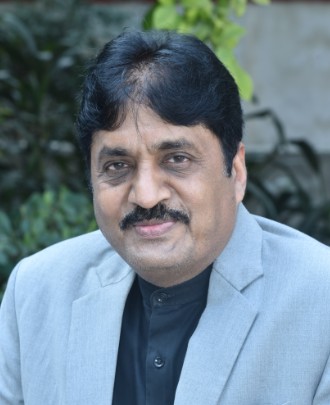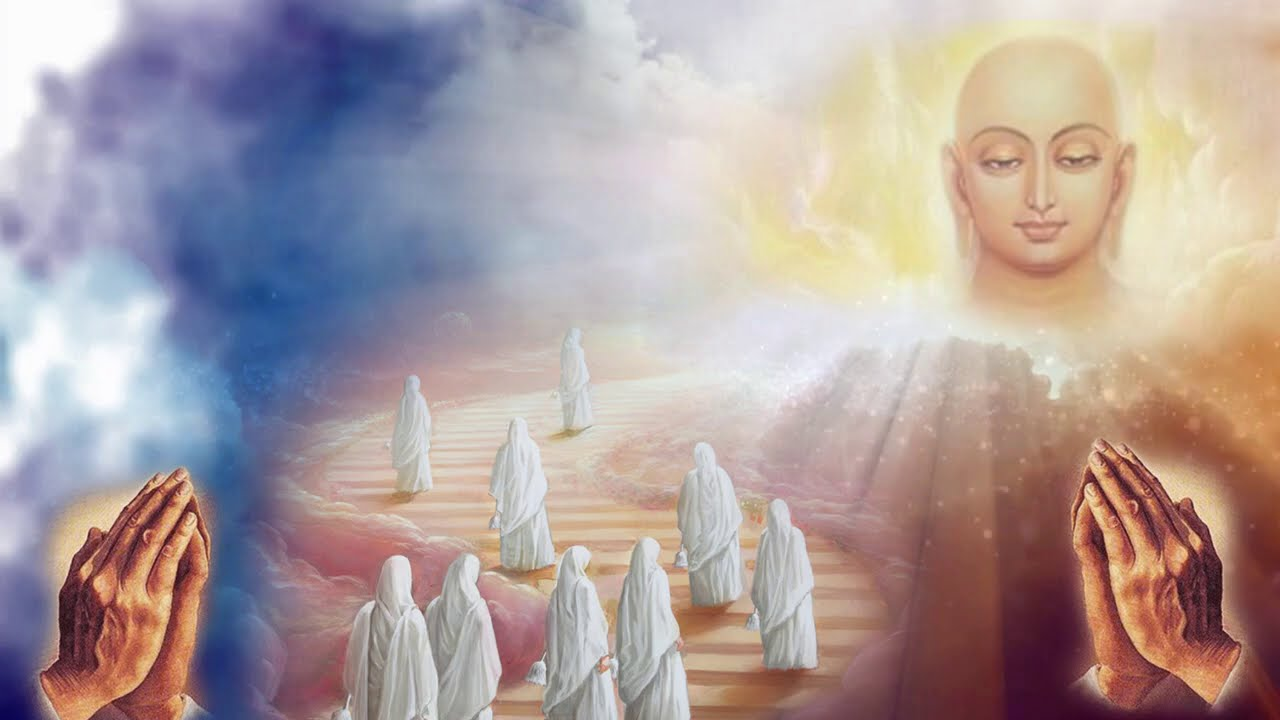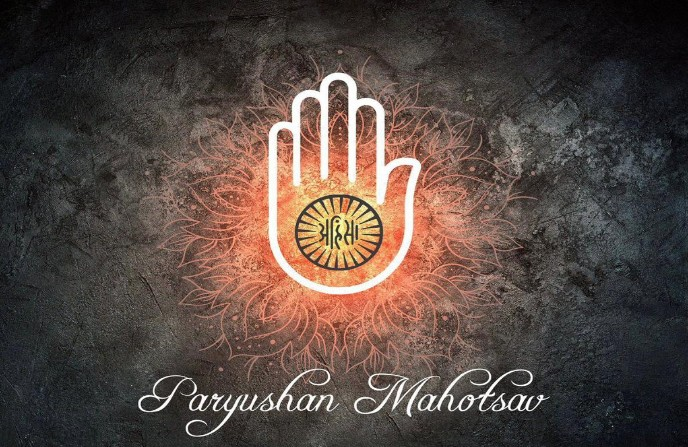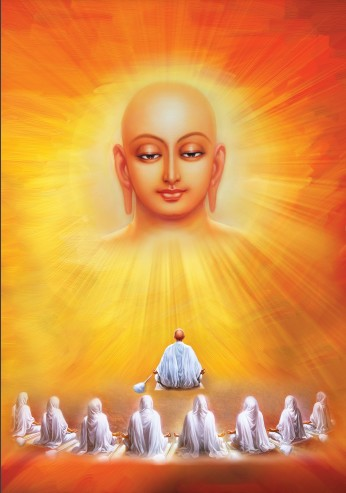Paryushan festival is such a great spiritual festival of eight days of Jain society, which not only illuminates our body, but can awaken the mind. This is such a season that not only the atmosphere but also the mind turns into purity. Aadhi, Vyadhi and Upadhi are treated and lead to Samadhi, which is celebrated every year all over the world. This festival has its own unique importance in the sacrificial culture of Jainism. It is not only a festival; it is considered a great festival. Because this festival is a spiritual festival, and is the only inspiring festival of self-purification. That is why this festival is not only a festival, it is a great festival. It is the most recognized festival of Jain people. The real meaning and purpose of Paryushana is to reside in nature, in the soul, being confined to the senses.
Paryushan festival is an occasion for many types of rituals like chanting, austerity, meditation, worship, anupreksha etc. This great festival is the festival of spiritual brightness. It is a day of introspection; it is time to look within. The Paryushan festival teaches us to look inward. The one watching outside remains on the edge. But one who dives deep finds priceless gems. Man's mind cannot become weightless until it reaches the depths of the inner being and becomes free from weight. Liberation cannot be attained by merely listening to the sermons. It can be attained through the spirit of ultimate meditation or by the classical knowledge of Aradhana-Viradhana.
For this it is necessary to do “Pratikraman”. The meaning of Pratikraman is to heal the wounds on daily, fortnightly and samvatsari occasions by treating the mistakes caused due to pramaada and the ulcers or wounds caused by it on consciousness. Pratikraman is the combination of two words, Pra meaning return and atikraman meaning violation. Literally, it means returning from the violations. As Jain householders, we are supposed to observe the twelve minor vows to minimize the violence towards other living beings which in turn minimizes the damage to our own souls.
Through pratikraman, the causes of mistakes can be discovered, and they can also be remedied. The essence of Pratikraman is come back to yourself. For example, coming from untruth to truth, from bad to good, moving from enmity to friendship. The root cause of today's man who is so disturbed is the lack of introspection. Everyone is blaming the other, but is not able to take even the slightest initiative in admitting his mistake. Through Pratikraman, mistakes made in one's life or inadvertently can be resolved contemplatively. The main purpose of doing pratikraman is to rectify mistakes. The result of pratikraman is - pratikraman of the past, contemporary to the present and denial for the future. The use of Pratikraman is a spiritual practice for purification of these three times – past, future and present. Soul is the creator of sorrow and happiness and destroyer of them. A soul engaged in good tendencies is a friend and a soul engaged in evil tendencies is its enemy. Therefore, one has to make a friend, find his secret within and destroy his enemies, and then his secret will also be found within. In fact, Paryushana is an infallible remedy for inner cleanliness.
The entire Jain society becomes awake and engaged in spiritual practice on the occasion of this festival. In the Digambara tradition, it is recognized as "DashlakshanaParva". Among them, its opening day is Bhadrav Shukla Panchami and the day of prosperity is Chaturdashi. On the other hand, in the Shwetambar Jain tradition, the day of BhadravShuklaPanchami is the day of Samadhi which is celebrated as Samvatsari with complete renunciation, fasting, self-study and abstinence. Even people who are unable to take time out during the year also wake up on this day. Even those who never fast are seen fasting ceremonially on this day. The literal meaning of Paryushan festival is to be situated in the soul. The word Paryushana is formed by adding a prefix and a suffix to it. One of the meanings of Paryushana is the destruction of karma. The enemies of Karma will be destroyed; only then the soul will be situated in its form, so this festival of Paryushan gives inspiration to the soul to reside in the soul.
Paryushan Mahaparva is a spiritual festival; the central element of it is the soul. Paryushan Mahaparva continues to play an ego role in revealing the pure, luminous form of the soul. ‘Adhyatma’ means closeness to the soul. This is the festival of connecting human-human and modifying the human heart, it is the festival of opening the windows, skylights and doors of the mind. This is the festival of “Kashaya Shaman”. This festival is celebrated for 8 days, in which heat, turmoil has arisen in someone, if a feeling of hatred has arisen towards someone, and then an undertaking is done to pacify him during this time. The 10 gates of religion have been mentioned, in which the first door is forgiveness. Forgiveness means equality. Forgiveness is very important for life, unless there is forgiveness in life, and then a person cannot progress on the path of spirituality.
In this festival, everyone tries to make them as pure as possible. A vow of love, forgiveness and true friendship is taken. The mind is strengthened to maintain the purity of food and the decency of conduct and behavior as an integral part of the lifestyle. Human unity, peaceful co-existence, friendship, socialism without exploitation, establishment of international moral values, support of non-violent lifestyle etc. are the main basis of Paryushan Mahaparva. Efforts are expected to make Paryushan Mahaparv a festival of the people, in order that these elements can become a part of the life of the people.
Whether a man is called religious or not, whether he believes in self-divine or not, whether he believes in past birth and reincarnation, whether he should resort to non-violence as far as possible in solving any of his problems - this is the heart of the sadhna of Paryushan. Violence cannot be a permanent solution to any problem. Those seeking a solution through violence have only exacerbated the problem. Keeping this fact in front, not only the Jain society, but also the common people should become faithful in the power of non-violence and use it with deep faith. Religion without morality, worship without character and the imagining of a hereafter reform without purification of the present life is a kind of irony. Religious can only be what is moral. The right to worship should be given to those who are of character. The focus should be on the purification of this life before entering the labyrinth of the hereafter. This is the safe way to proceed in the direction of Dharma and this is the basis of the significance of the festival of Paryushan.
The last stage of the Paryushan Mahaparva is Kshasmavani or apology, which is organized in the form of Friendship Day. In this way, Paryushan Mahaparva and Forgiveness Day - it is a festival to bring one person closer to another. It is a festival to end the distance between human beings and consider each other as their own. It is also said in the Gita, “Atmoupamyensarvatrah, saammepashyatiyorjuna.” Shri Krishna said to Arjuna – O Arjuna! Treat the animal as your equal. Lord Mahavira said- "Savvabhuvesu in mitti, veramjjhanakenai" I have friendship with all beings; I have no enmity with anyone.
Paryushan festival is the festival of worship of the inner soul - it is the festival of self-purification, it is the festival of giving up sleep. In fact, the festival of Paryushan is such a dawn which takes us from sleep to wakefulness. Lead us from the darkness of ignorance to the light of knowledge. So, it is necessary to remove the ego of sleep and get absorbed in the inner soul by doing special penance, chanting, worshiping self-study during these eight days, so that our life will be meaningful and successful.
 Lalit Garg
Lalit Garg


